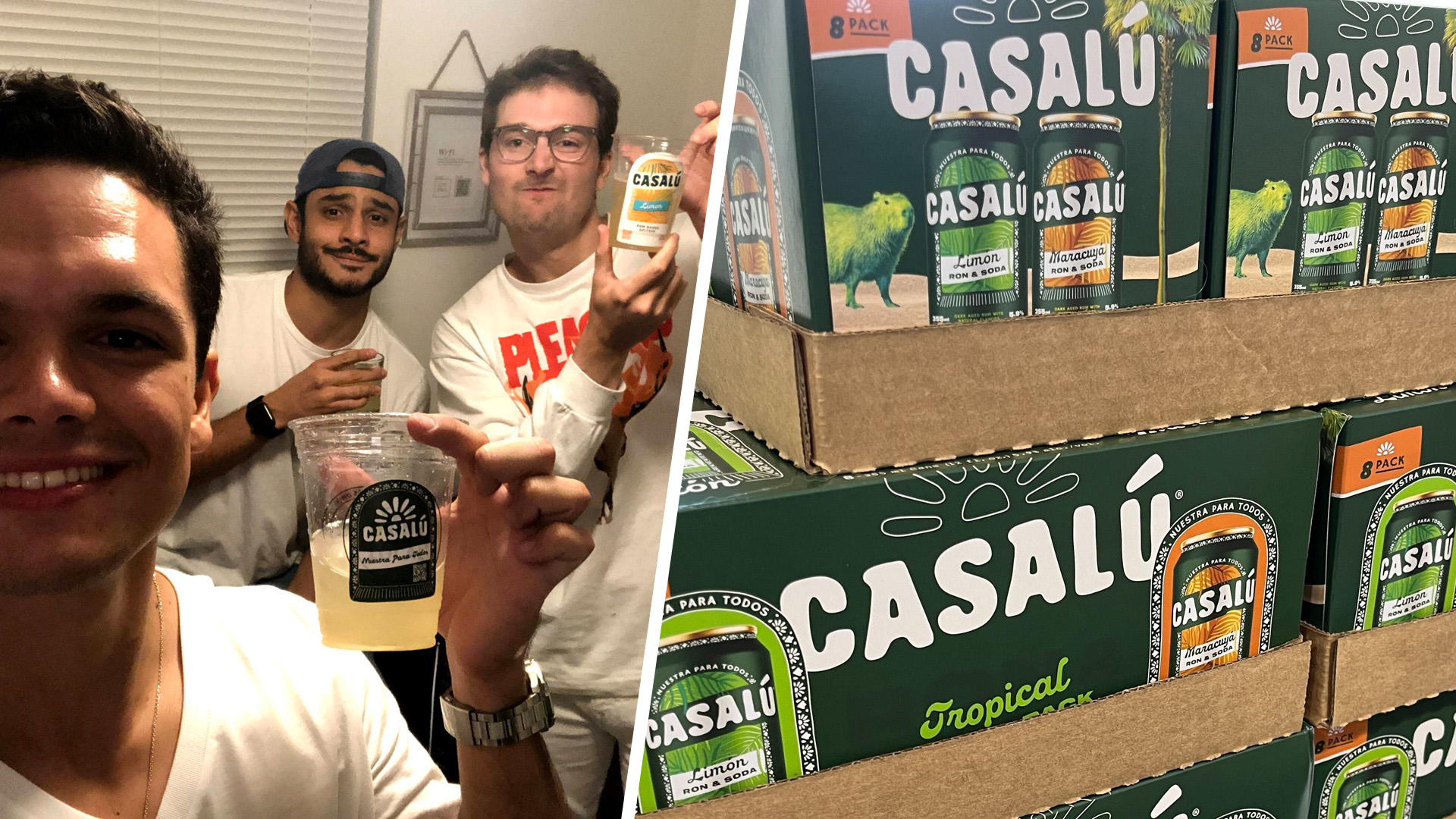Picture this:
Your arm hurts and you take a day off work to visit your local urgent care center to get it checked out.
But once you're at the clinic, you learn you will need a second doctor visit, maybe a third, to be seen by someone who specializes in the area of the body that is injured.
For Dr. Alejandro Badia, a Cuban-born orthopedic surgeon based in Florida, the cat-and-mouse game that patients have to play to access healthcare experts was too common for comfort, so he took matters into his own hands to solve it.
Badia is the founder of OrthoNOW, a Florida-based, full-service walk-in urgent care company whose sole goal is to simplify how people find and access specialized urgent care.
Get Tri-state area news delivered to your inbox.> Sign up for NBC New York's News Headlines newsletter.
Since its start in 2012, OrthoNOW has grown to three centers in Miami with plans of expanding internationally in the near future.
While now a successful business owner, Badia didn't always plan to own his own orthopedic company.
Bísness School
Cuban blood, New Jersey raised
Badia was born in Cuba, but from a young age, he remembers being raised in New Jersey.
"My dad worked in a warehouse and my mom started teaching," Badia explained.
"American kids were a bit unruly, so she ended up going and working in a hospital because we had a family tradition in Cuba, many physicians, and that was my earliest exposure to medicine," he said.
I'm a public school kid and proud of it.
Alejandro Badia
One of his first memories of medicine, particularly orthopedic medicine, was when he was just 8 years old and was accompanying his grandmother to see the doctor treating her debilitating rheumatoid arthritis.
"Her hands were very deformed," Badia said. "I didn't know then, but there was a procedure that was very new, kind of considered experimental. And this doctor, Dr. Bob Carroll, saw her for this."
"I remember sitting in the office and my feet were dangling, " Badia said. "I looked around his certificates and said, 'This would be really cool.'"
"I found out that Bob Carroll had trained Joseph Imbruglia," he said. "Imbruglia trained me in Pittsburgh at Allegheny General Hospital, 20-something years later. So that's a little world."
Shooting for the stars
As Badia grew older, he focused on different talents to get into college, particularly swimming, soccer and even some competitive ballroom dancing.
But it wasn't until he met his dermatologist as a teenager that he thought to "shoot for the stars" and apply to study at an Ivy League institution.
"He did open my eyes to shooting for the stars and really aspiring," Badia said.
"My guidance counselor, which can be typical in an inner city public school, didn't really even present that option to me, probably because I wasn't in the top three or four of my class," Badia said.
Badia was admitted to Cornell University in New York. He then went on to obtain a bachelor's in animal physiology in 1985, then on to NYU for medical school and later to Pittsburgh for his medical fellowship.
"When I did my fellowship in Pittsburgh, it was an upper extremity fellowship. So I did hand, wrist, elbow, shoulder surgery from the very beginning," Badia said.
Venture into private practice

After finishing his fellowships, Badia opened his first business in Miami in 1995.
"I saw Miami back then as having such a cosmopolitan future," Badia said. "I wanted to go somewhere where I would use my Spanish. So obviously being Cuban, there's a few Cubans here in Miami."
In the Miami suburb of Doral, Badia co-founded the Miami Hand Center, his first business, where it scaled up to have four partners and he remained there for 14 years before leaving to found his own practice.
"I was going on my own and had to build my own surgery center, which is a heck of a task," Badia said.
"I realized that with health care changing, I should have my own sort of emergency room, you know, entry point to a funnel for patients," Badia added.
He then opened a location of DoctorsNow, an urgent care center franchise.
"The concept of orthopedic urgent care hadn't really been developed," Badia explained. "They were based in the Midwest and it failed miserably."
"I was competing with one that a big hospital that had to this day a very big name," Badia added.
That location struggled and closed one year after opening.
"I wasn't able to get a franchise up and running with all the materials and all the knowledge there? Maybe entrepreneurship just isn't for me," Badia said he thought at the time.
An idea was born

Despite faltering at that first entrepreneurial journey, Badia knew one thing was clear: patients were losing a lot of time — and money — trying to schedule appointments with experts at big hospitals after their initial visit.
"My aspiration was that the patient should be seen by some type of orthopedic specialist from the get-go, that this would save time and money," he said.
So Badia came up with OrthoNOW, a one-stop orthopedics urgent care where patients could see an orthopedics expert from the start instead of wasting time scheduling additional appointments at a traditional urgent care.
If it was easy, anybody would do it, perseverance is key
Alejandro Badia
"When you go to a general urgent care, yes, it's very convenient. Yes, it's very dedicated. Physicians are there or mid-levels," Badia explained. "The problem is all those people are not trained in musculoskeletal medicine, so you end up making additional trips for care rather than resolving the problem in that first visit."
"The idea with OrthoNOW is the convenience of an urgent care walk-in center, but you have expertise in all of musculoskeletal medicine," Badia said.
So how does OrthoNOW make it easier for patients to reach healthcare experts? It all boils down to the company's own app where clinicians can contact Badia in a matter of seconds.
"It's an award-winning app where they contact me through the app, sending the X-ray and the clinical history only if it's either very complex, they want an opinion from me or because it's something that needs surgical intervention."
And this works with any OrthoNOW specialist, including hands, spine, foot, or ankle specialists, Badia explained.

Within the app, patients can do various things, including chat with physicians, refer new patients, or even call a ride to the nearest Ortho NOW center.
"We partnered with Uber and now Lyft so you can actually within our app call them... when you don't necessarily want to drive yourself," Badia explained.
"So these are all elements of the app that are designed to make that delivery of orthopedic care seamless."
Since its inception, OrthoNOW has grown steadily and pivoted to a licensing model. The company currently has three centers in Miami and is expecting to open a center in Alaska, with plans for an international location in the Dominican Republic.
Badia was interviewed for Bísness School, a series that tells the inspiring stories of Latino founders. Subscribe to Bísness School wherever you get your podcasts to get future episodes automatically. Remember, Business school is expensive. Bísness School is free.



